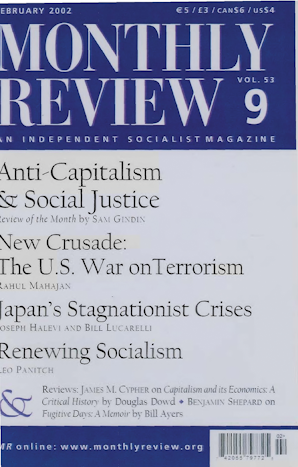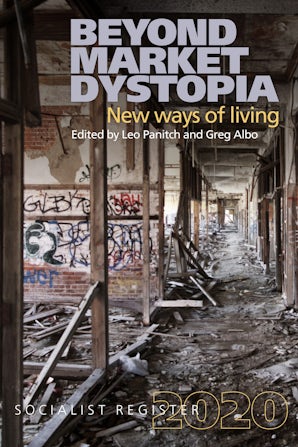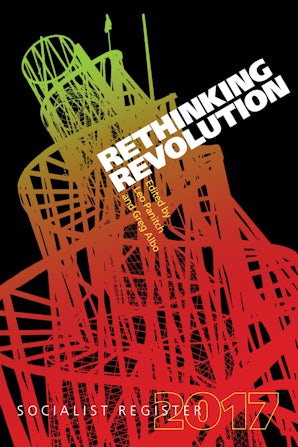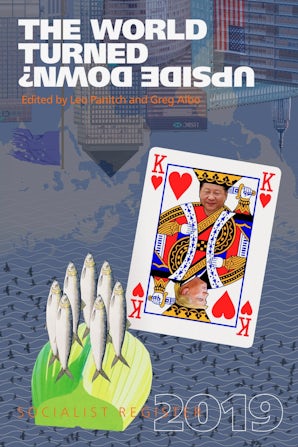Also in this issue
Books by Leo Panitch
Beyond Digital Capitalism: New Ways of Living
Edited by Leo Panitch and Greg Albo
Beyond Market Dystopia: New Ways of Living
Edited by Greg Albo and Leo Panitch
Transforming Classes
by Leo Panitch and Greg Albo
Rethinking Revolution
by Leo Panitch and Greg Albo
Edited by Leo Panitch and Greg Albo
The World Turned Upside Down?
Edited by Greg Albo and Leo Panitch
Article by Leo Panitch
- Violence as a Tool of Order and Change: The War on Terrorism and the Antiglobalization Movement
- Rejoinder to Leo Panitch and Sam Gindin; Panitch and Gindin Reply
- Rekindling Socialist Imagination: Utopian Vision and Working-Class Capacities
- The State in a Changing World: Social-Democratizing Global Capitalism?






